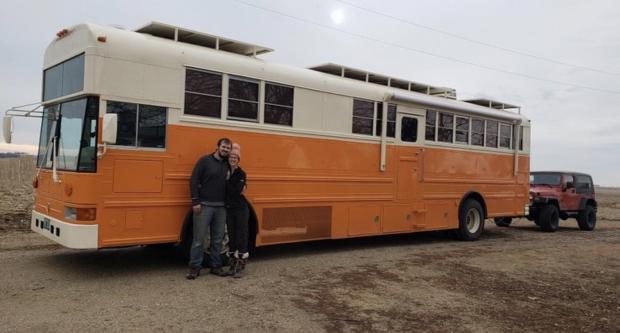
Breaking News
 The Prostate Cancer Test Dilemma
The Prostate Cancer Test Dilemma
 The Separation of Righteousness and Politics
The Separation of Righteousness and Politics
 Russian strike knocks out power in Kyiv FRANCE 24 English
Russian strike knocks out power in Kyiv FRANCE 24 English
 CLAIM: Bitcoin is going to ZERO folks – HOLY SCHLIT! Benny Johnson and Mike Benz on it
CLAIM: Bitcoin is going to ZERO folks – HOLY SCHLIT! Benny Johnson and Mike Benz on it
Top Tech News
 How underwater 3D printing could soon transform maritime construction
How underwater 3D printing could soon transform maritime construction
 Smart soldering iron packs a camera to show you what you're doing
Smart soldering iron packs a camera to show you what you're doing
 Look, no hands: Flying umbrella follows user through the rain
Look, no hands: Flying umbrella follows user through the rain
 Critical Linux Warning: 800,000 Devices Are EXPOSED
Critical Linux Warning: 800,000 Devices Are EXPOSED
 'Brave New World': IVF Company's Eugenics Tool Lets Couples Pick 'Best' Baby, Di
'Brave New World': IVF Company's Eugenics Tool Lets Couples Pick 'Best' Baby, Di
 The smartphone just fired a warning shot at the camera industry.
The smartphone just fired a warning shot at the camera industry.
 A revolutionary breakthrough in dental science is changing how we fight tooth decay
A revolutionary breakthrough in dental science is changing how we fight tooth decay
 Docan Energy "Panda": 32kWh for $2,530!
Docan Energy "Panda": 32kWh for $2,530!
 Rugged phone with multi-day battery life doubles as a 1080p projector
Rugged phone with multi-day battery life doubles as a 1080p projector
 4 Sisters Invent Electric Tractor with Mom and Dad and it's Selling in 5 Countries
4 Sisters Invent Electric Tractor with Mom and Dad and it's Selling in 5 Countries
Couple Converts 40-Foot School Bus into Gorgeous Home for Working and Travel–LOOK INSIDE

Josh and Emily Scherrer are married in their late 20s. They both work as engineers, and it happened that in 2020 they transitioned entirely to remote work.
Originally bonding over their love of travel and shared ambition to do more of it, they took the plunge and bought a school bus in January 2021 with the intention of turning it into a mobile home. School buses are cheaper than actual mobile homes, and provided more space for the couple who each needed their own office.
Working on the weekends and evenings, it took 18 months to transform the old bus into their "skoolie"—a modern term rapidly infiltrating the American zeitgeist that refers to a school bus that's been renovated into something new, like this fellow who turned it into a hostel, or this fellow who turned it into an Airbnb.
Now called "Aurora the Adventure Bus" on Instagram the skoolie is equipped with maple wood ceilings, shower, full-service kitchen, solar panels, and satellite internet. The conversion ended up costing $80,000, which the Scherrers admitted to Business Insider is well on the higher end for typical skoolie conversions.
"We don't have to pay for plane tickets or hotels, so we can experience more for our money," Emily Scherrer told BI. "Our expenses depend on where we park and the amenities we find."
The southwestern US has a lot of land available for public use… we like to use that kind of land versus going to campgrounds, which saves us a lot of money," she said.



